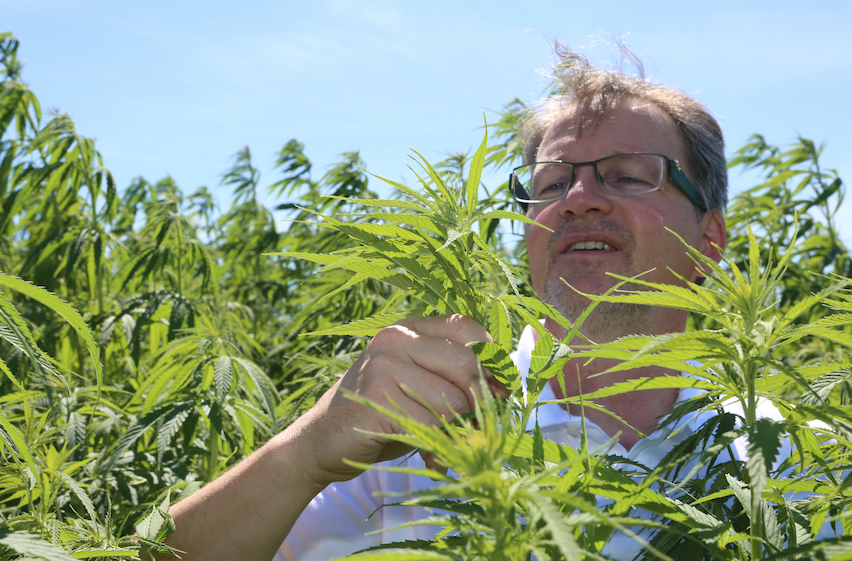Two of the World Health Organization’s (WHO) cannabis scheduling recommendations might face an uphill battle getting adopted later this year by the United Nations’ Commission on Narcotic Drugs (CND).
That revelation stems from an analysis of statements made by U.N.-member states at a recent two-day CND meeting.
Still, many in the cannabis industry are hoping for a positive outcome at the end of the year, when a vote is planned.
The reason: If the two recommendations discussed at the CND meeting in June are approved, international trade in certain CBD preparations is expected to become more free.
That’s because such products would be subject to fewer international controls. And that, in turn, could boost sales.
During the recent closed-door CND meeting, participants discussed two of the WHO’s six cannabis-related recommendations:
- Recommendation 5.4 to delete cannabis “extracts and tinctures” from Schedule 1 of the 1961 Single Convention on Narcotics Drugs.
- Recommendation 5.5 to add a footnote to the cannabis entry in Schedule 1 of the 1961 Single Convention to clarify that preparations containing predominantly CBD and up to 0.2% THC are not under international control.
The CND’s virtual meeting at the end of June included only U.N. member states and intergovernmental organizations.
But Marijuana Business Daily was able to watch most of the content and concluded that member states which actively engaged in the conversation were largely reluctant to change the status quo.
The debate around Recommendation 5.4 was relatively uneventful because many consider the proposal to be mostly of an administrative nature – intended to avoid repetition of the word “preparations” – rather than a move to reduce any controls.
By contrast, the CBD recommendation had almost no vocal supporters during the meeting.
If adopted, Recommendation 5.5 could have more direct implications for the cannabis industry and result in greater trade in CBD products.
Among those countries voicing reservations were the United States, Canada and Brazil as well as nations such as Kyrgyzstan.
The apparent lack of verbal support is a worrying sign for cannabis companies hoping to capitalize on this possible international change that would clarify that certain CBD products are not subject to the controls of the 1961 Single Convention.
However, it is worth noting that a large number of countries remained silent throughout the meeting. These included European countries that were present at the meeting but only rarely engaged in the conversation.
If those countries support the recommendations in December, the chances of approval would look better than what the June meeting suggested.
In addition, many of the U.N.-member states that expressed disagreement with the two WHO recommendations aren’t current members of the CND, which means their position wouldn’t count in the December vote. These include nations such as Ghana and Singapore.
United States voices opposition
Recommendation 5.5 saw resistance from the United States – which until now had not voiced a firm opinion on this proposal.
But in statements at the meeting, the U.S. was clear it does not intend to support the WHO proposal.
Instead, it would prefer that member states “decide for themselves what an appropriate threshold (of THC) should be.”
The June meeting – as preparation for an expected December vote – was the “first topical meeting” in a series of three during which countries will discuss economic, legal, administrative and other implications of adopting the six WHO cannabis proposals.
The second “topical meeting” is scheduled to be held virtually Aug. 24-25.
In principle, the meeting will also be exclusively for member states and intergovernmental organizations. However, during the first meeting, Canada and Mexico asked the commission to reconsider the exclusion of civil society, such as nongovernmental organizations and reporters.
The ‘experts’
More than 600 participants from more than 100 U.N.-member states registered for the first topical meeting.
Countries also had the opportunity to preregister experts to deliver introductory presentations throughout the meetings, but only the following did so:
- Algeria.
- Argentina.
- Australia.
- Brazil.
- China.
- Colombia.
- Japan.
- Nigeria.
- Russia.
- Singapore.
- Turkey.
- United States.
Most of the experts were government officials either from health or drug enforcement agencies.
European countries not only were largely silent during the open debate, they also did not make use of the opportunity to bring in experts.
Recommendation 5.4
The first day’s discussion was about the proposal to remove cannabis “extracts and tinctures” from Schedule 1 of the 1961 treaty.
Although many consider this proposal to be simply administrative in nature, countries such as Japan expressed concern about the intention behind the recommendation and noted that its adoption might lead to misunderstandings.
Singapore warned during its presentation that this proposal would “result in loss of control.”
Thailand was worried that the proposal could “mislead the general public that they (tinctures and extracts) are not harmful and could be used without any restrictions.”
Recommendation 5.5
If the CBD recommendation is adopted, qualifying products would be exempt from international control.
However, many member countries and the European Commission are still unsure about the possible ramifications of the proposal’s approval.
This was one of the reasons why voting was previously postponed to December.
More recently, the International Narcotics Control Board (INCB) raised questions about the applicability of this recommendation and warned that cannabis cultivation for the purpose of extracting CBD would remain under control even if the proposal is adopted.
Although the 1961 convention exempts from its scope cannabis cultivation for “industrial purposes” – mentioning fiber and seeds as examples – the INCB interprets the examples as exhaustive.
Not everyone agrees with this way of reading the treaty. For instance, the U.S. said in the June meeting that fiber and seed are “suggestions” and “not a hard limitation.”
But when it comes to Recommendation 5.5, the U.S. said that several issues prevent the country from supporting the proposal.
One of several U.S. arguments was that member states should determine for “themselves what a pure preparation of CBD might contain, based on analytical capacity, abuse liability and prioritization of prosecutorial resources.”
In April, the U.S. removed CBD drug Epidiolex from its controlled substances list.
Canada also seemed unsupportive of Recommendation 5.5 as it is written, calling on the WHO to:
- “Reformulate” the proposal because it is “inconsistent” with the 1961 treaty to specify “what is not subject to control rather than indicating what is subject to control.”
- “Reexamine the THC threshold” – a position shared by the U.S.
Most of the countries that made statements about Recommendation 5.5 also had opposing positions, but for other reasons:
- Brazil was worried about several issues, including the possibility of THC products bearing fake CBD labels to disguise international control.
- Japan showed concern about the potential application of this recommendation to nonmedical products, something “not in line with the (1961) Convention.”
- Singapore emphasized “preparations containing THC should not be excluded from international control, regardless of the amount.”
- Indonesia lamented the WHO made a “hasty” decision to say that CBD preparations with minimum THC aren’t liable to abuse and called for more research. The spokesperson of the country said it’s “unnecessary” to use CBD medicines to treat children with epilepsy, as other more efficacious medicines are already available.
- Turkey criticized the “predominantly CBD preparations” definition as ambiguous. The speaker also questioned the current ambiguity surrounding “cannabis cultivation for nonmedical CBD.”
Alfredo Pascual can be reached at alfredop@mjbizdaily.com






